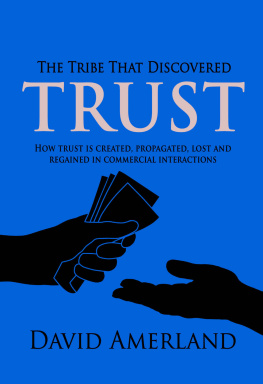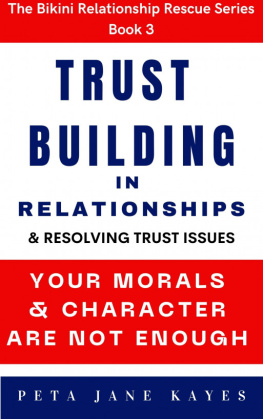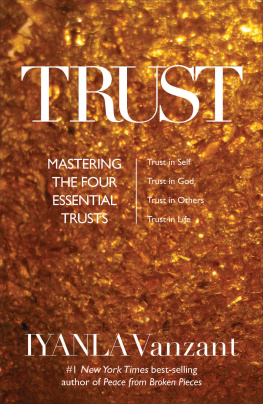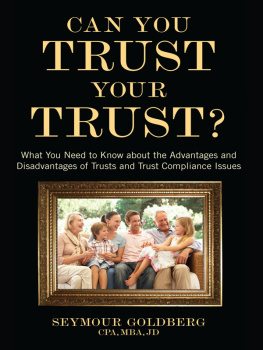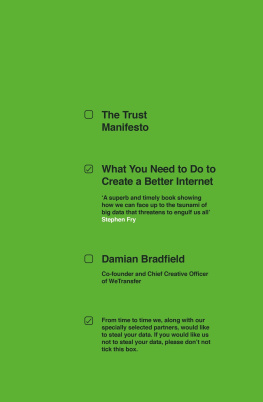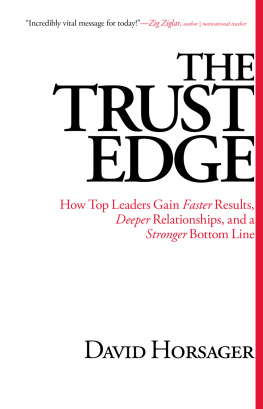The Tribe That Discovered Trust
How trust is created lost and regained in commercial interactions
David Amerland
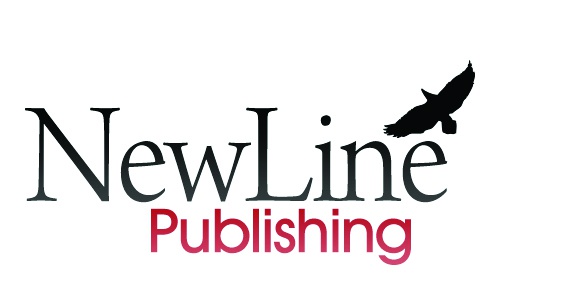
The Tribe That Discovered Trust
Copyright David Amerland, 2015
All rights reserved. No part of this publication may be reproduced, distributed, or transmitted in any form or by any means, including photocopying, recording, or other electronic or mechanical methods, without the prior written permission of the publisher, except in the case of brief quotations embodied in critical reviews and certain other noncommercial uses permitted by copyright law.
Printed in the United States of America.
This eBook version, 2015
ISBN 13: 978-1-84481-975-1
Warning and Disclaimer
Although every precaution has been taken to verify the accuracy of the information contained herein, the author and publisher assume no responsibility for any errors or omissions. No liability is assumed for damages that may result from the use of information contained within.
Trust Agents are digital natives using the web to be genuine and to humanize their business. They are interested in people (prospective customers, employees, colleagues, and more) and they have realized that these tools that enable more unique, robust communication also allow more business opportunities for everyone.
- Trust Agents
About the Author
David Amerland is the author of nine best-selling books on search, social media and marketing, including Google Semantic Search, SEO Help and The Social Media Mind.
His involvement with the Web goes back to the days when the number of websites in existence could fit in a printed 80-page directory and SEO consisted of keyword stuffing and pixel-wide hidden text.
Since those less enlightened days he has worked with blue-chip multinationals and individual entrepreneurs alike helping them craft SEO and social media marketing strategies that work with their internal cultures and deliver value to their target audience.
He writes for Forbes, HP UK, Social Media Today, and blogs on his own website, davidamerland.com. When he is not writing or surfing the Web he spends time giving speeches on how social media is changing everything.
Dedication
Every person needs an anchor. I am no different. There are two Ns in my life and in their own way each helps keep me sane and grounded, at least while they are looking. To them both I am beholden.
Acknowledgements
Every book I write makes me conscious of just how many people exactly it takes to help me do something only I can do. The list is long for this one too. Heidi Bouman has to be first not just because without her keeping order in the Cloudwars community I would not have been able to concentrate but because she also managed to keep track of every single Unicorn! Full kudos to John Kellden whose sensemaking has always made sense and who has been instrumental in unleashing more thoughts than most people I know. Iblis Blane needs a mention, not least because he made me realize that trust has nothing to do with a name and a picture. A special thanks to Bruce Marko, who gets what trust is about and Ron Serina, whose conversations are always enjoyable. In putting this book together I drew from my own well of ideas but I could not have plumbed those depths so well had I not known Vincent Messina who really needs to be experienced over time to be appreciated. I am more grateful than I could ever let you know to all those I cannot mention in the companies I work with. Your generous sharing of data, ideas and stories of success and failure helped me shape a book thats relevant to what we are trying to achieve in the 21st century. A special mention must be made to Jared Hamilton, CEO at DrivingSales for generously sharing original research in the automobile industry, there are few organizations that get just how important trust is in closing the gap between a brand and its customers and these guys really get it. The illustration included in the first chapter of the third section of this book is directly from their research. There are two more people I am going to single out this time. One is Oleg Moskalensky whose conversation, ideas and above all friendship always make me feel more worthy than I have a right to be. The other one is Farinaz Parsay whose candor is always captivating. This list is not exhaustive by any means and there are many more I have not singled out. Youre on G+ and we talk often. To you all I am particularly grateful and you know who you are. Finally thanks to Samantha Wales for putting up with my last minute changes and my tardiness in returning the edits. As always, many more eyes than just mine have looked at this manuscript and suggested changes and corrections. The mistakes that might persist, are down to yours truly.
Contents
Introduction
The world has changed. Technology is driving a large part of that change but it is not the reason for the change itself. Technology, of itself, continues to do what it has always done: in the first instance it provides an amplification of our physical capabilities that changes the physical restrictions the world imposes upon us. Then, as it matures, it picks up and amplifies the invisible things inside our heads, the space where our thoughts, desires and hopes swirl. In doing so it begins to merge the impact of both function and form. It breaches the traditional barriers that contain us and brings whats inside our heads outside and vice versa.
Thats when it really challenges us because it forces us to try and understand the things we have never really thought about. The things we tend to take for granted: Trust and trustworthiness, truth and truthfulness, honesty and reputation. Being good as opposed to being bad. As it becomes embedded into our lives technology becomes invisible, but its effects are still felt.
The world, we say, has become more transparent. Its technology that has made it so. Social media platforms have changed the way we communicate with one another and theyve changed the way we receive information from those who traditionally have been the gatekeepers of power in our world. They have changed the way we find romantic partners, jobs and friends. Theyve changed the way we form communities and create modern tribes.
The devices in our pockets have become so powerful and capable that we barely think about what they do. We just know that they are there. Capable of bringing people together, across countries, ethnicities, timezones and language barriers.
Thats the paradox about technology. In the early days when youre struggling to get it to do what you want it to do, its all about the technology. When that is taken care of however. When devices just work. When data flows everywhere, unbidden, unstoppable, with the barest of friction. When information conforms to the vision famously formalized by Stewart Brand and actually is free because the cost of sharing it is so low as to be virtually zero. Then technology disappears entirely. What is important when this happens is what has always been important: Human relationships.
Thats when we begin to realize that while things are still the same some things have changed. We form relationships when we have no choice because we physically have to exist. We have to have a shape and a form and it needs a place to live in and another place to work and both of these places are surrounded by other shapes and forms, similar to ours with which we need to find ways to get along.
In the digital domain however we always have a choice. We choose to be online and we choose to do specific things when there. We choose the people we talk to and decide just how we want to be known and what we really want to be.
Next page
